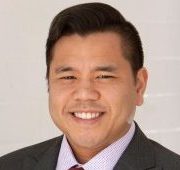IN my last article, I explained why it is absolute necessary to qualify for Medi-Cal and get the government to pay for nursing home care for an ailing parent or loved one. After all, how many families do you know who can afford paying $8,000-$15,000 a month for Long Term Care. However, using Medi-Cal for Long Term Care has one major drawback: the Medi-Cal Estate Recovery Program.
In this article, we will discuss how to legally avoid future estate recovery claims. Basically, the estate of any person over 65 who receives Medi-Cal benefits is subject to the recovery process. When the beneficiary passes away (and his or her spouse), Medi-Cal has the right to recover benefits paid from the estate.
What can Medi-Cal come after? Pretty much anything left in the deceased person’s estate. This includes liquid assets such as investment accounts and bank accounts. It also includes real property, including the family home! How much can they come after? Medi-Cal is entitled to recover the lesser of the amount of benefits paid or the deceased’s entire estate. If a Medi-Cal beneficiary was in a nursing home for an extended period of time, the Recovery claim could easily exceed everything the person owned, including the entire home.
So what can you do? The easiest and most cost effective measure to protect against recovery is to make sure there is nothing left in the Medi-Cal beneficiary’s estate. In future articles we will discuss protecting other assets, but here we will go over what can be done to protect the home, specifically the outright gift and the Medi-Cal House Protection Trust.
An outright give is the simplest way to get the home out of the Medi-Cal beneficiary’s estate. Because it is a gift, the transfer of the home is not considered income to the recipient and therefore no income tax is paid by the child(ren). Additionally, the Lifetime Gift Tax exemption is currently $5.43 million. There are no gift taxes due by the parent as long as the gifts are under this amount. The parent should file a gift tax return for the year the gift was made that signal to the IRS that some of the lifetime tax credit has been used up.
Additionally, this transfer does not result in an increase in property taxes if the transfer was made to the children or grandchildren. Proposition 58 and 193 are California constitutional initiatives that make it easier to keep property “in the family” by providing tax relief for real property transfers between parents and children and from grandparents to grandchildren, respectively. Proposition 58 states that real property transfers from parent to child or child to parent may be excluded from reassessment while Proposition 193 extends the relief to grandparent(s) and grandchild(ren).
An outright gift of the principal residence to the children while the parents are still alive causes a loss of a step-up in basis under IRC Section 1014, which could result in substantial capital gains taxes upon sale. One solution is to execute a grant deed combined with a Lifetime Right to Occupy Agreement between the parent(s) and the child(ren). An occupancy agreement is an agreement where the parent(s) retain the right to occupy the residence until death. As a result, the value of the residence would be includable in the parent’s estate under IRC Section 2036 and the child(ren) would receive a step- up in basis.
Medi-Cal Estate Recovery is a significant drawback that can be easily avoided with some simple thought and planning. Unfortunately, the implementation of the Deficit Reduction Act of 2005 may get rid of some of our Medi-Cal planning strategies in the new future, so if you are on Medi-Cal or a family member may need Long Term Care in the future it would be wise to implement these techniques right away. Next time we’ll discuss the benefits of the Medi-Cal House Protection Trust and the ways this irrevocable trust can benefit you and your family.
* * *
Elder Law Services of California is proud to announce that attorney Andrew Paranal has joined its trust department. Mr. Paranal began his career in estate planning in 2013 and has since expanded into asset protection and Medi-Cal planning. He became interested in Elder Law after helping care for a family member who experienced a debilitating event. Mr. Paranal is excited to join an established law firm and hopes to educate his Filipino community about the tremendous benefits of proper estate planning.
For more information, please visit elderlawcalifornia.com or call 1-800-411-0546
Please follow us on our social media sites for up to date information!
Facebook: https://www.facebook.com/elderlawcalifornia
Instagram: https://www.instagram.com/elderlawservices/
Twitter: https://twitter.com/elderlawservice





